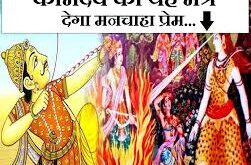दो बौद्ध भिक्षु पहाड़ी पर स्थित अपने मठ की ओर जा रहे थे। रास्ते में एक गहरा नाला पड़ता था। वहां नाले के किनारे एक युवती बैठी थी, जिसे नाला पार करके मठ के दूसरी ओर स्थित अपने गांव पहुंचना था, लेकिन बारिश के कारण नाले में पानी अधिक होने से युवती नाले को पार करने का साहस नहीं कर पा रही थी।
भिक्षुओं में से एक ने, जो अपेक्षाकृत युवा था, युवती को अपने कंधे पर बिठाया और नाले के पार ले जाकर छोड़ दिया। युवती अपने गांव की ओर जाने वाले रास्ते पर बढ़ चली और भिक्षु अपने मठ की ओर जाने वाले रास्ते पर।
दूसरे भिक्षु ने युवती को अपने कंधे पर बिठा कर नाला पार कराने वाले भिक्षु से उस समय तो कुछ नहीं कहा, पर मन मारकर उसके साथ-साथ पहाड़ी पर चढ़ता रहा। मठ आ गया तो इस भिक्षु से और नहीं रहा गया।
उसने अपने साथी से कहा, हमारे संप्रदाय में स्त्री को छूने की ही नहीं, देखने की भी मना है। लेकिन तुमने तो उस युवा स्त्री को अपने हाथों से उठाकर कंधे पर बिठाया और नाला पार करवाया। यह बड़ी लज्जा की बात है।
ओह! तो ये बात है, पहले भिक्षु ने कहा, पर मैं तो उसे नाला पार कराने के बाद वहीं छोड़ आया था, लेकिन लगता है कि तुम उसे अब तक ढो रहे हो। संन्यास का अर्थ किसी की सेवा या सहायता करने से विरत होना नहीं होता, बल्कि मन से वासना और विकारों का त्याग करना होता है।
इस दृष्टि से उस युवती को कंधे पर बिठाकर नाला पार करा देने वाला भिक्षु ही सही अर्थों में संन्यासी है। दूसरे भिक्षु का मन तो विकार से भरा हुआ था। हम अपने मन में समाए विकारों और वासना पर नियंत्रण कर लें, तो गृहस्थ होते हुए भी संन्यासी ही हैं।
In English
Two Buddhist monks were heading towards their monastery on the hill. There was a deep drain on the way. There was a young woman sitting on the bank of the nallah, who had to reach the village on the other side of the math by crossing the riverbed, but due to the overcrowding of the water in the drain, the maiden could not dare to cross the nallah.
One of the monks, who was relatively young, placed the woman on her shoulder and left it across the nalla and left it. The girl grew up on her way towards her village and the monk went on her way towards her monastery.
The other monk did not say anything at that time with the monk carrying the woman on her shoulder, but she kept on climbing the hill along with her. If the monastery came, then this monk was no more.
He told his partner, not only to touch the woman in our community but also to see. But you raised the young woman with her hands and placed it on the shoulder and crossed the drain. This is a matter of great shame.
Oh, is that so! So this is the matter, first the monk said, but I had left it after crossing the drain, but it seems that you are doing it till now. Nyasa means not to be disturbed by anybody’s service or assistance but rather to relieve lust and disorders from the heart.
In this sense, the monk, who is crossing the river by setting the young woman on the shoulder, is a sannyasi in the right sense. The mind of the other monk was full of disorder. If we control our disorders and lusts in our mind, then being a householder is also a monk.
 पौराणिक कथाओं, प्रेरक क्षण, मंदिरों, धर्मों, फिल्मों, हस्तियों के बारे में दिलचस्प जानकारी, हजारों गाने, भजन, आरती के बोल हैं Your wish may come true today…
पौराणिक कथाओं, प्रेरक क्षण, मंदिरों, धर्मों, फिल्मों, हस्तियों के बारे में दिलचस्प जानकारी, हजारों गाने, भजन, आरती के बोल हैं Your wish may come true today…




























